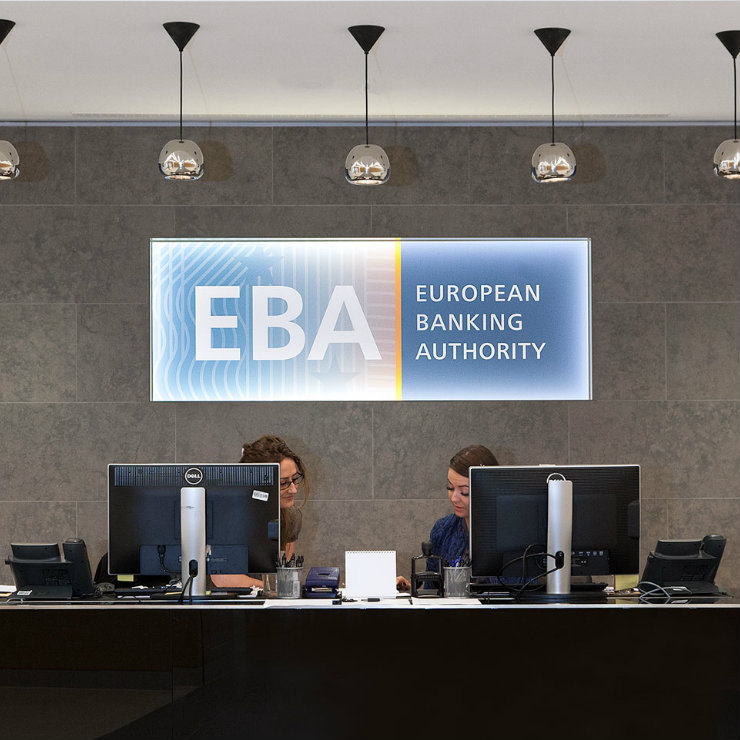Tydzień w gospodarce
Category: Trendy gospodarcze
Analyst, journalist specializing in the Western Balkans and Middle East domestic and foreign affairs

(EBA, Public domain)
In the first round, each country would split its votes for the three candidates, giving in the first round three voices, in the second two, and in the third one. After that, the top three would go to the second round and the two finals would appear. Complications so very familiar with the EU has been bypassed by the simple decisions, though. And not good ones for Central or Southeast Europe (CSE).
Two agencies currently have their headquarters in London, but as they cannot be positioned outside the member states, the process of its move has started. First is the European Medicines Agency (EMA) which employs some 1,000 people and has 35 thousand visiting scientists annually. By its financial power, it is very attractive to any EU member state. Second is European Banking Authority (EBA). The competition narrowed between two host towns, Amsterdam and Milan for EMA, Paris, and Dublin for EBA. However, what was important was not the dramatic finale, but another divide between the European East and West. Not only none of the candidates from the East won, but none entered the second round. And while all the „new“ members states, with the exception of Croatia, are members for ten or more years, this was again a sign of inequality among the richer and poorer EU members.
True, some countries applied only to be on the list, without much hope of winning. One exception is Slovakia; Bratislava is very close to Vienna and has a good environment, thus it could have been one of the favorite choices. Slovaks went with great hopes in the first round, but when they were defeated in the second round of voting, they were so disappointed, they decided to boycott the vote. That is why the last result between Amsterdam and Milan was a draw. Croatia also announced the candidature for Zagreb, but it withdrew its offer for the EMA. Croatian arguments were that the state was not satisfied with the decision criteria, among these geographic ones which didn’t take into account an idea to forbid candidature to those countries which already have an EU agency. Five member states have no agency, and Croatia is one of them. It is not only a question of prestige. These agencies create thousands of jobs, both at its headquarters and in the economy as a whole. For example, EMA will bring many high-skilled positions to Amsterdam, but also roughly 1,500 new jobs in catering, security, and childcare.
However, geographic criteria for new agencies give priority to those countries without any agency. It was a decision made on the EU summit in 2003. The old member states concluded it is only a transfer of an agency, not creating a new one. Croatia itself didn’t have much chance to win the competition for EMA headquarters, not only because the European Commission notices some serious flaws in the Croatian candidacy, but also because Croatia is the newest member and has little allies in this regard. There is a feeling Croats didn’t approach the candidacy too seriously and wanted only to put Zagreb on the list. But the point is that most employees of the aforementioned agencies have previously stated that they would resign if they would have to move to Sofia, Warsaw or Bucharest. Zagreb wasn’t even mentioned in the discussion.
The EU has avoided the mass layoffs that would have resulted if these jobs had been moved to an CSE country. That speaks well about the discrepancy between the words of the EU Commissioners and the deeds of their generously paid civil servants. The European media bursts with rumors of various deals brokered by important member states, almost as an agreement how to divide the spoils of Brexit. However, a bigger difficulty is that CSE was ignored by many western European member states, which brings again the problematic discussions about the EU’s future, as it increases the distrust between EU countries and Euroskepticism.
Still, some claims over the economic gains in the West may be flawed. One of the common myths is that Germany profits over the poorer CSE countries: Germans have easier placement of their products in other countries without customs, they experience an immigration and gain with the relative quality and cheaper workforce and open German-owned companies in other countries. All three components are, however, pieces of the market economy, but it has benefits for other countries as well. When Germans open a manufacture in Slovakia, Slovaks get better jobs and the country profits from the taxes. If we point to the net difference between giving and taking to and from the EU budget, Germany is in constant deficit. For instance, in 2015 Germany gave EUR24.3bn to Brussels, and withdrew EUR11bn, meaning Germany loses some EUR13bn every year.
Dutch give EUR5,8bn and have a return of EUR2,4bn, meaning they put 2,5 times more into the common budget then the Netherlands get back for various projects. Among the big losers of the budgetary input-output ratio are the United Kingdom, Sweden, Denmark, Austria, Italy, Finland, and France. The biggest winners of this ratio are Luxembourg (five times more money withdrawn), and the new members, with a notable exception of Slovenia, Croatia, and Cyprus. Croatia is the worst country among the newer members, as it puts EUR357m to the common budget but gets back EUR605m. In comparison, Poland paid in 2015 EUR3.7bn to the budget and gets back EUR13.4bn. Almost 60 per cent of that money goes to the regional infrastructure. In the last 13 years, Poland withdrew more than EUR250bn, which is the record among all the EU member states.
Given the hard facts over the years, it is dubious how more and more Euroskepticism becomes prevalent in the new member states. The Czech Republic and Hungary gain excellent profits from the EU, not only in trade and economy but also in better healthcare and higher education. Still, they are leading Eurosceptic countries. It seems the increase is mostly due to some kind of „mood“ than to the economy. The fear of losing cultural identity and financial expectations are mostly unrelated to economic background. Thus, when the geographic positioning of EU agencies is in question, the economy still plays the lesser role. Other theorists argue the Euroskepticism is strong at times when trade and economy growth are low and vice versa.
This notion might be tested soon if the European Union embraces the idea of the French president Emmanuel Macron, who suggests the budgetary reform. He says it is not fair that few countries finance the others. It might not be sustainable in the long run too. And while the quarrel of the newer member states is about the EU agencies and possibility to have huge salaries, the black clouds are looming over politically divided and Euroskeptic societies.
Vedran Obućina is an analyst and a journalist specializing in the Croatian and Middle East domestic and foreign affairs. He is the Secretary of the Society for Mediterranean Studies at the University of Rijeka and a Foreign Affairs Analyst at The Atlantic Post.

